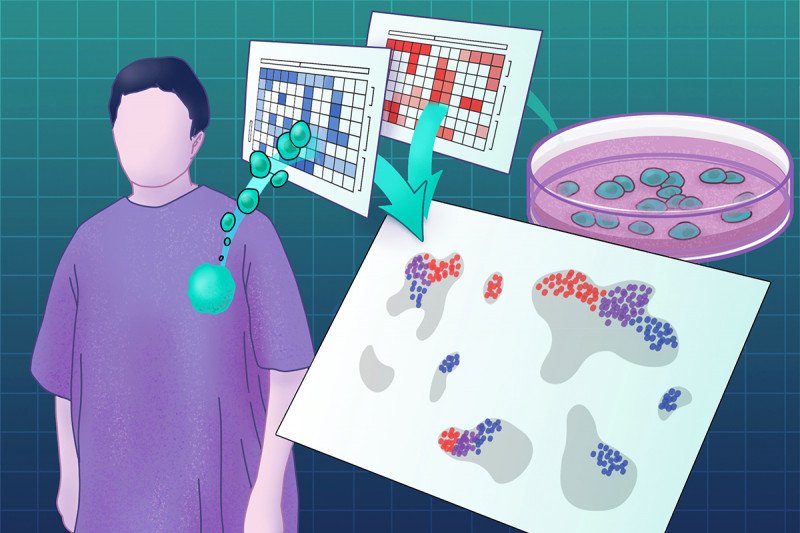
In the past five years, single-cell genomics has revealed tremendous heterogeneity within tumor-infiltrating immune cells and particularly within tumor-resident T-cells. Whether this functional heterogeneity is accompanied by metabolic heterogeneity is unknown. We aim to combine single cell genomics with synthetic biology to identify metabolic hallmarks of discrete immune cell populations within tumors:
- Can we define discrete transcriptional and epigenetic programs of conventional and exhausted T-cells during select nutrient limitations?
- Do tumor-infiltrating T-cells within different tumors and/or different tissues selectively express these metabolic gene expression and/or chromatin signatures?
- Can we combine this information with targeted CRISPR screens to map the altered differentiation of T-cells within distinct tumor types and identify tumor-specific targets to enhance immunotherapy?
Techniques
Metabolic profiling: We use a combination of unbiased metabolomics, isotope tracing, and biochemical assays to deeply characterize nutrient uptake and utilization in vitro and in vivo (Vardhana et al, Nat Immunol 2020).
Immunologic assays: We have incorporated metabolic features into conventional immunologic assays, including flow cytometry, in vitro cytotoxicity assays, and proliferation assays to identify metabolic contributions to well-validated assays of immune function.
Molecular genetics: We use recombinant genetics and shRNA or CRISPR-mediated gene silencing to assess the role of genes involved in either immune cell signaling or cellular metabolism during immune responses.
Mouse models: We have generated novel, antigen-specific genetically engineered mouse models (GEMM) to define how the metabolic behavior of an individual T-cell clone is affected by tumor cell of origin or tissue residence.
Single-cell genomics: We are leveraging single-cell RNA and ATAC sequencing technology to identify metabolic hallmarks within tumor-infiltrating single immune cells.
Synthetic biology: We construct synthetic tumor substrates that enable deep metabolic profiling of both conventional and CAR-T-cells during the development of T-cell exhaustion and in response to immune checkpoint inhibitors.